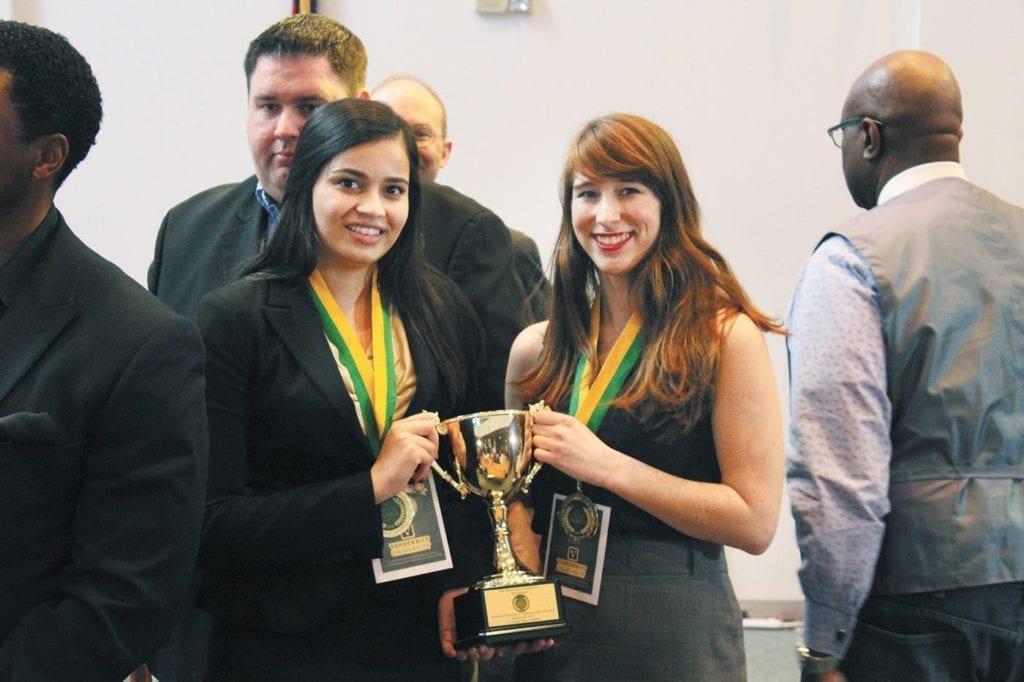By Clint Confehr
NASHVILLE, TN — Winners of the Great Debate-Nashville last weekend at Gordon Memorial United Methodist Church were the audience, students, sponsors and the community, according to organizers and participants.
That’s how the exhibition debates — no scoring to determine winners — were first described by coaches, organizers and associates who emphasized the larger goal of examining important issues related to identity movements and civil disobedience.
However, judges scored the debates.
Winning the first debate was Pearl-Cohn Entertainment Magnet High School with a score of 35, or five more than the 30 points secured by McGavock High School students’ 30 points.
By a closer margin, Vanderbilt University won the college debate with 43.5 points, two points more than the 41.5-point score earned by Tennessee State University.
TSU and Vanderbilt hadn’t competed academically before and the Rev. Charles L. White Jr., senior pastor at Gordon Memorial, on Sunday reported good reactions.
“It’s inspired the Reclamation Center to further the dialogue between the institutions” with another debate possible, Rev. White said, noting the center as cosponsoring the debate with the church. “We often celebrate athleticism, but we don’t often celebrate academics.”
The high school and university debates were recorded. A link to the video is to be on Gordon Memorial’s web site.
Voting brings change more than civil disobedience, according to one argument during debate that was substantiated with the assertion that oil pipeline construction continues despite protest. Other points: protest spread by social media — especially when posts go viral — is very effective; recurring demonstrations in Ferguson resulted in change that otherwise wouldn’t have been achieved for residents of that Missouri city; and movements based on the identity of advocates and/or protestors can falter if, for example, a black shooter harms a cause when killing Dallas police.
“The issue is identity,” said Denise Knowles, one of 250 people in the audience. She was moved to share her childhood bedtime prayer; “Please God, let me wake up white.”
Knowles shared prayer, Rev. White said, shows “the genius of the moment. The debate provoked those kinds of conversations of the past and the confrontations of the present.”
Former metro’s school board chair Sharon Gentry continued that post debate conversation saying identity through gender, race, religion and socioeconomic status are “handed to you, but what you make of that… is your choice.”
TSU debater Mel Williams said, “Social movements make change… People don’t assume black people are dumb” as a result of the Civil Rights movement.
Vanderbilt debater Apurva Kunte said, “We centered the debate around social movements being necessary, but not necessarily identity-based social movements.” For example, the Patriot Act. “was not structured around any identity, but rather an issue that people felt was important and that created a movement which crated policy change.”
However, Kunte acknowledged the Patriot Act became law after 9-11 terrorist attacks, but was proposed before 9-11.
TSU debater Barbra Dudley spoke quickly, won audience applause, and proclaimed victory.
Pearl-Cohn Community Schools Coordinator Tanzie Hill and Ronald Ruffin, who coached McGavock students, said their teams were created when invited to debate at Gordon Memorial.
Ruffin said, “This is not a school-sponsored program. This is an adjunct program. There is a debate team at McGavock, but that is not us. This is an extra curricular group sponsored by Kappa Alpha Psi. We’re mentors.”
Noting those and other firsts, Rev. White said, “It was absolutely amazing to witness history in the making.”


